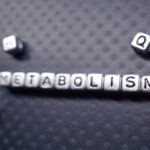Can Diet Cause “Low T”?

We have a cultural obsession with testosterone. Some of this understandable–after all, testosterone can help make a person lean and strong. But we apparently have a problem with it; it is now common to hear men talk about being diagnosed with “low T” and blame it for numerous health complications, including lack of energy and inability to lose weight. Many are inclined to think that the low testosterone is the cause of the weight gain, and this can certainly happen [1]; testosterone does indeed help promote weight loss by increasing fat metabolism.
However, the significant rise in men being diagnosed with “low testosterone” suggests something else is occurring (unless you espouse the idea that men have spontaneously become “less manly”). Thus, before we conclude that men have, within a generation, evolved to spontaneously develop low testosterone and become obese and infertile, it’s worthwhile to explore the process in reverse—that is to say, to consider that poor metabolic health is preceding and causing the reduced testosterone production.
Men with higher body fat tend to have less testosterone [2], and testosterone levels increase as a man loses weight [3]. There may be two reasons for this.
Firstly, as we gain body fat, the hormone insulin is necessarily elevated (elevated insulin is required for fat gain). Insulin is highly relevant in sex hormone production and levels in the blood. Several studies, including both cross-sectional and intervention research [4], have confirmed that insulin, independent of body fat, directly inhibits testosterone production. It’s like a battle between the pancreas and testicles–and the pancreas wins; more insulin leads to lower testosterone.
Second, ovaries in women, unlike testes in men, produce relatively little testosterone. Rather, ovaries are equipped with high levels of aromatase–the very busy enzyme that changes “male” hormones (e.g., testosterone) to “female” hormones (i.e., “estrogens”). (This also happens in the testicles, just not as much.) Remarkably, aromatase, this same enzyme that operates in the gonads of men and women, also exists in fat tissue [5]. Yes, men: the larger your fat cells get, the more they start behaving like ovaries.
So, if your doctor tells you you’re “Low T,” don’t blame your testes for what your fat did!
References
- Mauras, N., et al., Testosterone deficiency in young men: marked alterations in whole body protein kinetics, strength, and adiposity. J Clin Endocrinol Metab, 1998. 83(6): p. 1886-92.
- Wang, C., et al., Low testosterone associated with obesity and the metabolic syndrome contributes to sexual dysfunction and cardiovascular disease risk in men with type 2 diabetes. Diabetes Care, 2011. 34(7): p. 1669-75.
- Niskanen, L., et al., Changes in sex hormone-binding globulin and testosterone during weight loss and weight maintenance in abdominally obese men with the metabolic syndrome. Diabetes Obes Metab, 2004. 6(3): p. 208-15.
- Simon, D., et al., Interrelation between plasma testosterone and plasma insulin in healthy adult men: the Telecom Study. Diabetologia, 1992. 35(2): p. 173-7; Pitteloud, N., et al., Increasing insulin resistance is associated with a decrease in Leydig cell testosterone secretion in men. J Clin Endocrinol Metab, 2005. 90(5): p. 2636-41.
- Ackerman, G.E., et al., Aromatization of androstenedione by human adipose tissue stromal cells in monolayer culture. J Clin Endocrinol Metab, 1981. 53(2): p. 412-7.
This article is for informational and educational purposes only. It is not, nor is it intended to be substitute for professional medical advice, diagnosis, or treatment and should never be relied upon for specific medical advice.

















